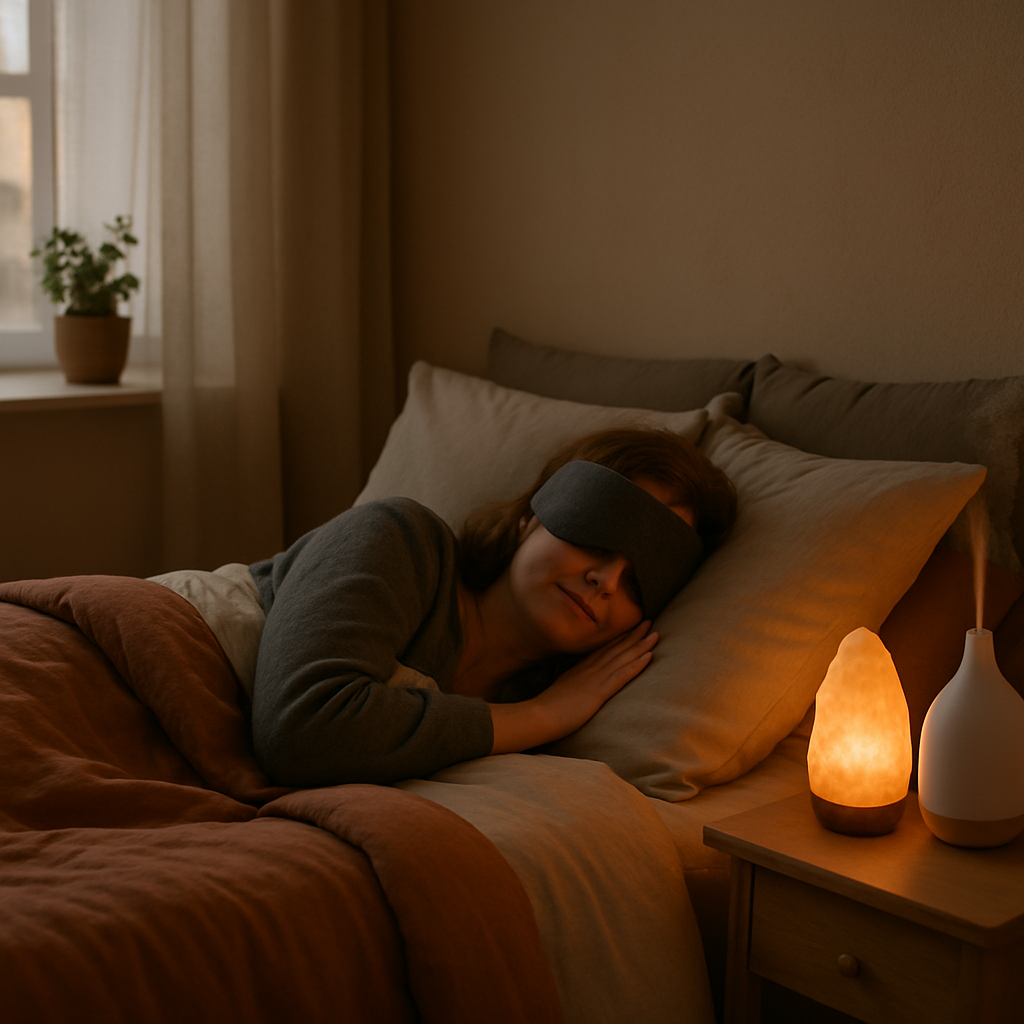
If you’re like most folks, sleep can sometimes feel like a bit of a mystery. You hit the hay, hoping for a restful night, only to wake up feeling like you spent the night wrestling with your duvet. Sure, we all know the basics: get your eight hours, avoid late-night caffeine, and keep your bedroom dark and cool. But what about the little-known tricks that can actually make a difference? Let’s explore some of the unconventional sleep hacks that might just turn your restless nights into blissful slumber.
The Power of a Weighted Blanket
Weighted blankets have been all the rage lately, and for good reason. They’re like a warm hug that lasts all night long. These blankets, often filled with glass beads or plastic pellets, apply gentle pressure, which can help reduce anxiety and promote deeper sleep. The science behind them is rooted in deep touch pressure therapy, a concept that suggests firm but gentle pressure can calm the nervous system. Researchers at the University of Gothenburg in Sweden found that participants using weighted blankets reported improved sleep quality and reduced insomnia symptoms (Ekholm et al., 2020).
Sleep Schedules: Not Just for Kids
Now, I used to think sleep schedules were just for toddlers. But boy, was I wrong. Turns out, our bodies love consistency. Going to bed and waking up at the same time every day can regulate your body’s internal clock, making it easier to fall asleep and wake up refreshed. I know, I know weekends are for sleeping in, right? But sticking to a regular schedule might be just the ticket to better sleep. Plus, you might find you have a little extra time in the morning to enjoy a quiet cup of coffee or a quick jog (speaking from experience here).
The 4-7-8 Breathing Trick
Here’s something you might not have tried: the 4-7-8 breathing technique. It’s a bit like a magic spell for sleep, except you don’t need a wand. Developed by Dr. Andrew Weil, this method involves inhaling through your nose for four seconds, holding your breath for seven seconds, and exhaling through your mouth for eight seconds. It acts as a natural tranquilizer for the nervous system. I stumbled upon this technique during a particularly stressful week at work and, I have to say, it worked wonders.
Blue Light Blockers
With phones, tablets, and laptops glued to our hands, blue light exposure is a sleep-wreaking havoc that creeps in unnoticed. The blue light emitted by screens interrupts the production of melatonin, the hormone that regulates sleep. Enter blue light-blocking glasses. These nifty specs filter out the disruptive blue light, and though it may sound a bit sci-fi, they do seem to help. After trying them out myself, I noticed I was able to fall asleep faster, and my eyes felt less strained at the end of the day. It’s a small investment for a potentially big payoff.
Listen to Your Gut
Now, this one might sound a bit out there, but hear me out. The gut-brain connection is a fascinating area of research. What you eat can influence how you sleep. For instance, foods rich in magnesium, like almonds and spinach, can promote better sleep. I remember reading an article by Dr. Michael Breus, a clinical psychologist and sleep specialist, who suggested incorporating a banana as a pre-bedtime snack. Packed with potassium and magnesium, it might help your muscles relax. And hey, if nothing else, it’s a healthy snack!
Embrace the Art of Visualization
Picture yourself on a beach, the sound of the waves lulling you to sleep. Visualization techniques can help distract your mind from the stresses of the day, allowing you to drift off more easily. A study by Oxford University found that people who visualized calming scenes fell asleep faster than those who didn’t (Allan et al., 2009). It’s like a mental escape, and let’s be honest, who couldn’t use a mini-vacation before bed?
Aromatherapy with a Twist
Lavender is often touted as the go-to scent for relaxation. But have you ever considered blending it with something unexpected, like peppermint? The combination might surprise you. The invigorating nature of peppermint paired with the calming essence of lavender can create a balanced environment conducive to sleep. I was skeptical at first, but after a friend recommended it, I gave it a whirl. Now, it’s become part of my bedtime ritual, a small indulgence that signals it’s time to unwind.
A Note on Sleep Apps
With technology at our fingertips, sleep apps are another tool in our arsenal. Apps like Sleep Cycle or Calm offer guided meditations, soundscapes, and sleep analytics. While I initially hesitated to bring my phone into my sleep sanctuary, the insights and soothing sounds provided by these apps have become a surprising ally in my quest for better sleep. Just remember to set your phone to airplane mode to minimize disruptions.
A Different Kind of Nightcap
We often hear about avoiding alcohol before bed, but what about trying a different kind of nightcap? Herbal teas, like chamomile or valerian root, have sedative properties that can ease you into sleep. I’ve found brewing a cup of sleepy-time tea to be a comforting part of my nighttime routine. Plus, it’s a great way to wind down and signal to your body that it’s time to hit the sack.
Letting Go of Perfect
Lastly, and perhaps most importantly, is the idea of letting go of the quest for perfect sleep. Not every night is going to be a dream. There will be nights where sleep eludes you, and that’s okay. After all, stressing about not sleeping can be a major sleep blocker in itself. I’ve come to accept that some nights are just meant for counting sheep. Acknowledging that has brought a surprising sense of peace and has, paradoxically, helped me sleep better.
So there you have it, a handful of unconventional sleep hacks that might just change how you approach your nightly rest. Whether you try one or all, the key is to find what resonates with you. Sleep, after all, is as personal as it gets.

